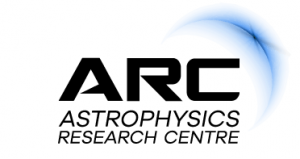Astrophysics PhD Candidate Selected for Prestigious International PhD Programme
Click here for isiZulu version
PhD candidate at UKZN’s Astrophysics Research Centre (ARC) Mr Brandon Bisschoff is one of 10 doctoral candidates from across the African continent selected to participate in the “100 PhDs for Africa” programme through the École polytechnique fédérale de Lausanne (EPFL) in Switzerland.
The programme forms part of EPFL’s Excellence in Africa (EXAF) research centre founded together with the Université Mohammed VI Polytechnique (UM6P) in Morocco to enhance research, training and innovation in Africa.
This EXAF programme, one of the centre’s three pillars, supports doctoral candidates registered and supervised at African institutions of higher learning by funding their studies, providing co-supervision by a professor at EPFL as well as opportunities to visit EPFL and UM6P for summer and spring schools, workshops and conferences. The programme aims to contribute to the establishment of these researchers’ careers and their advancement of Africa’s economies and societies.
This first call for proposals for the programme attracted 854 doctoral candidates from 37 countries in Africa with only 10 selected, based on the quality of their research after a competitive round of proposals and interviews – a selection rate of 1%.
‘I feel very excited and honoured to receive such an excellent opportunity to meet, collaborate and work with some of the best researchers in the world, especially in a field I am very passionate about,’ said Bisschoff.
‘This programme will help me to become a better researcher with guidance from experts in the field of astrophysics and cosmology and contribute as an African to this arena, and who knows, maybe even win the Nobel Prize one day!’
Bisschoff’s PhD research involves the magnetic field in the early Universe – he will investigate how the inter-galactic magnetic field (IGMF) can affect star and galaxy formation 10 billion years after the Big Bang.
Being a recipient of “100 PhDs for Africa” programme will elevate international collaboration on his research as Bisschoff is supervised by the ARC’s Professor Yin-Zhe Ma at UKZN and Professor Jean-Paul Kneib at EPFL.
Kneib heads up EPFL’s Astrophysics Laboratory and is a leading expert on the large-scale structure of the Universe. He also leads Switzerland’s participation in the Square Kilometre Array project in South Africa’s Northern Cape.
Bisschoff, who completed his undergraduate and master’s degrees at the University of the Free State, developed the concept for his PhD studies while still a master’s student and took the initiative to approach Ma to take the research forward.
He summarised his research by explaining that the IGMF, the weakest predicted magnetic field in the Universe, should permeate the entire Universe and can be used as a probe of the Big Bang given that it has likely not been amplified like the magnetic field in denser regions of the Universe.
‘The IGMF should be the oldest magnetic field within the Universe and might contain critical information on the very first process that occurred,’ explained Bisschoff.
Direct measurements of the IGMF strength have not yet been obtained, so Bisschoff plans to simulate the IGMF and test these simulations to obtain a better understanding of its properties, of the early sub-galactic structure formation and the epoch of re-ionization from which magnetic fields emanated. He also aims to obtain more robust, accurate and consistent constraints on the IGMF through a combined simulation and observation approach.
‘To fully understand the dynamics, past and evolution of all baryonic matter, it is necessary to study all the different scale magnetic fields within the Universe that govern the interactions and dynamics of this matter,’ said Ma. ‘The electromagnetic force controls a significant amount of this within the Universe – from small scale planetary to large-scale galaxy cluster magnetic fields.’
Words: Christine Cuénod
Inspiring Greatness
© University of KwaZulu-Natal: All Rights Reserved






